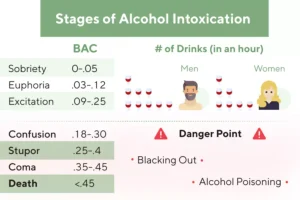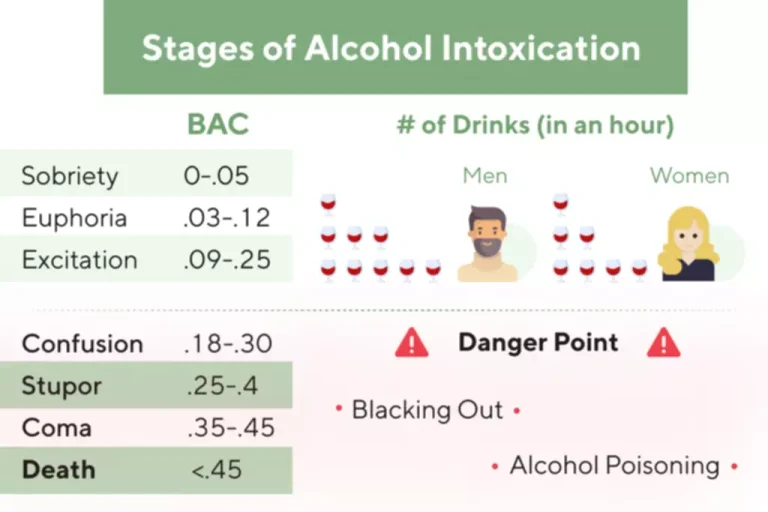
This activates the stress response, which speeds up heart rate, respiration, and blood pressure, and increases body temperature. Stress also affects focus and attention abilities, and heightens energy while decreasing appetite and sleep functions. One study found that chronic alcohol use decreases the function in the prefrontal cortex, which plays a key role in impulse control. Researchers have also linked impulsive alcohol-related behavior to genetic involvement, with the presence of the serotonin 2B receptor gene (HTR2B) playing a role in impulsive and aggressive behaviors while under the influence of alcohol. Alcohol consumption can have a significant impact on the brain’s chemistry and function, which can in turn influence emotional regulation and the expression of anger.

The Experience Blog

In many cases, individuals with underlying anger issues may turn to alcohol as a means of coping with or suppressing their intense emotions. The temporary relief and disinhibition provided by alcohol can provide a false sense of control, only to lead to more intense anger outbursts and a deepening of the problem. Factors like underlying personality traits, neurochemical makeup, and even the presence of disorders like antisocial personality disorder (ASPD) can influence alcohol-related aggression. Alcoholic rage syndrome refers to a pattern of intense anger and aggression triggered by alcohol consumption.
- Ashwood Recovery, located in Boise, Idaho, provides outpatient treatment for co-occurring disorders, individual alcohol counseling, and family counseling.
- This temporary relief, however, often leads to a cycle of alcohol abuse, which in turn can exacerbate the underlying anger issues.
- Getting active can help release the physical tension that comes with anger, as well as give you a boost in endorphins.
- In his case, he was already predisposed to anger arousal before he had his first drink.
- Anger is rarely an isolated emotion, shedding light on its connection to alcoholism.
- The connection between alcohol consumption and anger is complex, with alcohol often acting as a catalyst that amplifies underlying challenges related to anger management.
Prescription Drug Addiction Facts and Statistics
When your spouse or partner is misusing alcohol, it’s important to see support from others, rather than going it along. The following resources may be helpful for yourself, your family members, and/or the individual struggling with alcohol misuse. Online programs like Ria Health can give you or your loved one access to coaching support, anti-craving medication, and helpful digital tools. Whether you want to reduce drinking or quit altogether Ria will partner with you to design a program to meet your personal goals. You may be wondering what you can do when someone shows signs of rage after consuming too much alcohol. While it is always better to discourage the use of alcohol for people who have this tendency, some things can be done to manage the situation.
- You may also want to monitor your sugar intake because sugar highs and lows can increase irritability.
- Acting on anger increases blood pressure and heart rate and results in a surge of adrenaline.
- This article discusses some of the facts behind the stereotype of the “angry drunk” and explores the connection between anger and alcohol.
- It’s common for alcohol and anger to be stereotypically lumped together, but many people labeled “angry” while drinking may actually be experiencing aggression or hostility.
Recognizing Xanax Withdrawal Symptoms in a Friend

Throughout these changes, learning how to manage anger more effectively is essential. The good news is, many of the same tools that will support your sobriety https://ecosoberhouse.com/ will also help you process and cope with anger. The following are some tips on handling anger as you work towards your goals. Extreme emotions that are usually hidden from others, like anger and sadness, may be more noticeable when you drink because you’re less able to conceal and manage them.
Impaired emotional regulation, decision-making, and impulse control
Those who do seem prone to get angry under the influence might have some characteristic brain activity patterns going on. These neurochemical changes are correlated to some behavioral symptoms, such as disinhibition, and also relate to some psychological factors. With some insight into factors that can cause rage or aggression while drinking, you can take steps to avoid certain behaviors.
- If we hang out with people who throw digs at each other (or at us) or normalize alcohol-induced aggression, it’s more likely to make an appearance.
- Mood stabilizers, antidepressants, or anti-anxiety medications can all help to regulate and control negative emotions, during both detox and treatment for anger management and alcohol addiction.
- Often, when children, spouses and other loved ones spend time close to someone who becomes abusive when they drink, their lives change for the worse.
- Breathing exercises, journaling, and other distress tolerance skills can help you calm down long enough to be able to express anger in a more effective manner.
- Let’s explore the impact of drinking alcohol on various parts of the brain.

Letting the individual know they are heard and understood can de-escalate tension and foster a sense of trust and cooperation. When confronted with anger in intoxicated individuals, alcoholism and anger maintaining calmness and composure is key. Avoid escalating the situation further by remaining level-headed and composed, even in the face of provocation. Anger, aggression, and hostility seem like common terms that are related to each other. It is important to understand the specific impact of alcohol on these conditions.